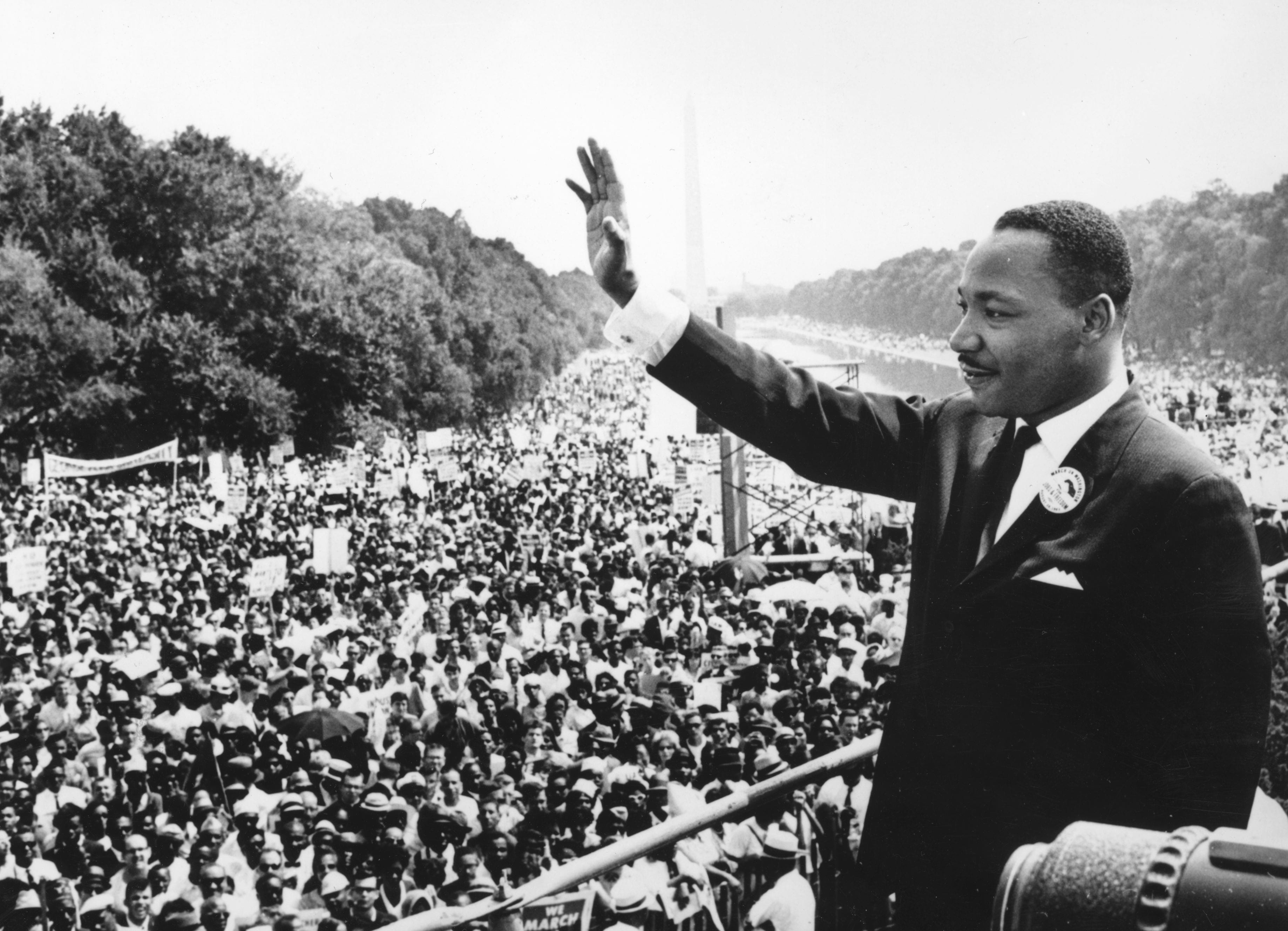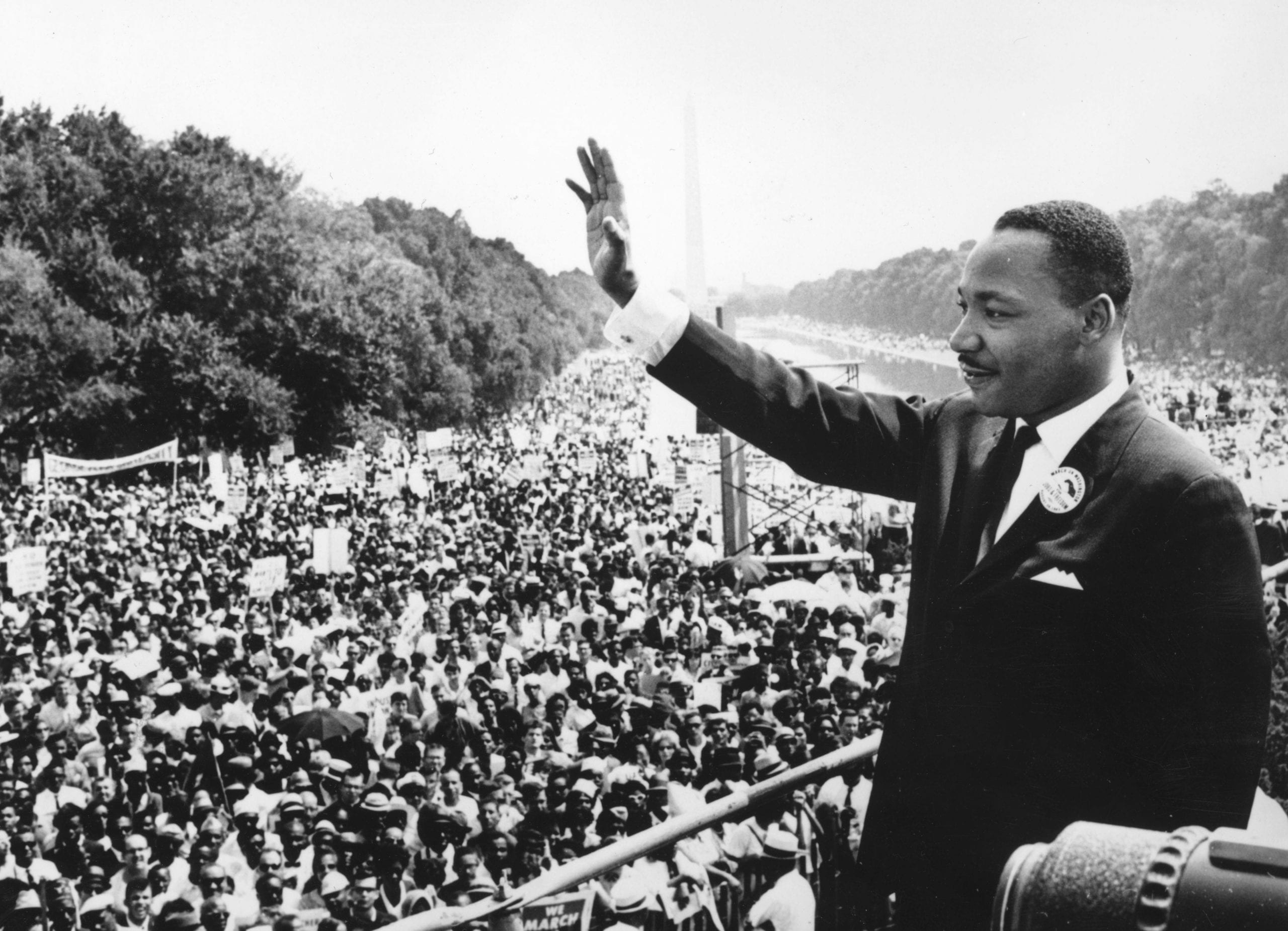Christy Joshy – Social Media Editor
“I have a dream:” Martin Luther King Jr.’s four words that revolutionized an entire civil rights movement in the United States. For the African American audience listening, this sentence sparked their ambitions to pursue their ideal careers, to provide safety and stability for their families, to run for president, but most of all, to be seen.
Since the beginning of colonialism in the United States, African Americans were subjected to slavery and servitude at the hands of their white masters. Even after Abraham Lincoln’s Emancipation Proclamation in 1863 that abolished slavery, segregation and systemic racism persisted. Thus, the civil rights movement in the mid-20th century symbolized a new chapter for the lives of millions of black Americans. Despite the immense struggles they and their ancestors faced, the strength of the black community to resist and overcome their obstacles proved to be more powerful. And leading the fight was none other than Martin Luther King, Jr.
Born on January 15, 1929, in Atlanta, King grew up to be a Baptist minister with a distaste for the disparity in his community. Eager for change, he joined the growing civil rights movement. His ideas that were in part inspired by Mahatma Gandhi’s nonviolence campaign sparked controversy in America and a fire in the hearts of African Americans and their allies. King’s positive outlook for the future uplifted many like-minded black Americans to reinvent and pursue their dreams. In a society built on institutionalized racism and which instilled the belief of inferiority amongst its minorities, King’s approach offered hope and a longing for a more promising life.
King’s “dream” of a world free of racism and segregation for his children to live in illustrates the dark and unwritten rules of the so-called ‘American dream.’ The long-standing American belief of equal opportunity and success was not shared with black Americans but was instead withheld and used against them. However, King’s illuminating ideas revolutionized how African Americans saw their future, as more possibilities suddenly seemed imaginable.
Since the Civil Rights Act of 1964, which banned segregation and employment discrimination, a lot has changed. More and more black Americans display their potential with incredible achievements in education, politics, entertainment, etc. The rise of the civil rights movement even paved the way for other minority groups, like the LGBTQ+ community, to gain a voice in a white-dominated and hetero-normative society.
However, despite the positive effects, remnants of the nation’s sinister history of racism remain. According to a study done by Business Insider, in 2018, the average wage for a black worker was 62 percent of a white worker in the United States. Poverty rates in black homes are more than double that of white homes and continue to rise, with the current Covid-19 pandemic disproportionately affecting minorities.
The reach of racism goes beyond equality of opportunity. For true equality to be possible, establishing a stable foundation and environment for all children to succeed and live without boundaries is the foremost step to dismantling the system—and that was Martin Luther King Jr.’s dream.

joshc2@mail.broward.edu
